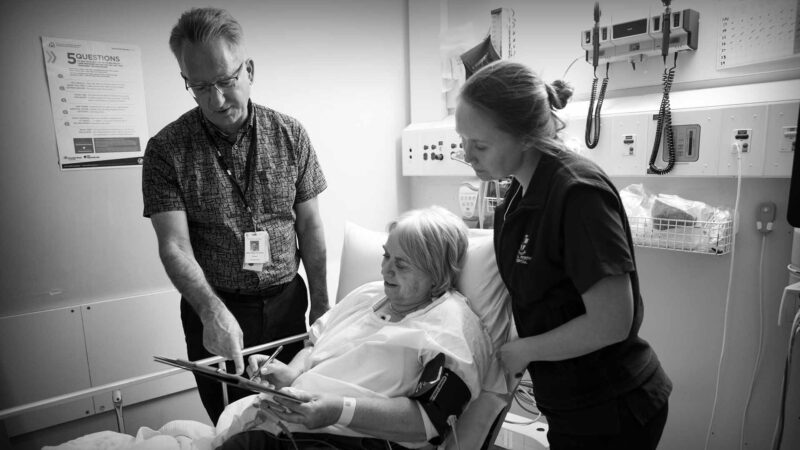RESEARCHER PROFILE
Jason Rogers (Filmed April 2024)
Postdoctoral Fellow
Menzies Institute for Medical Research,
University of Tasmania
Jason Rogers is a Tasmanian physiotherapist clinician-researcher with a longstanding interest in improving musculoskeletal foot and ankle conditions. He completed his PhD at the Menzies Institute for Medical Research at the University of Tasmania in 2022 investigating the clinical and imaging factors associated with a common foot complaint known as chronic plantar heel pain.
Chronic plantar heel pain, historically known as plantar fasciitis, is common and commonly recalcitrant, yet the optimal treatment for this condition is not clear. The focus of Jason’s postgraduate research is on improving treatment pathways for chronic plantar heel pain. In particular his research has identified that there are many different sub-groups of plantar heel pain that may warrant specific and individualised treatment approaches. For example his research found that up to half of people with this condition have a type of bone bruise or stress response in the heel known as a ‘bone marrow lesion’ (BML). His BALSA trial will test the effectiveness of targeting these lesions with a bone-sensitive treatment known as shockwave therapy, comparing pain and BML size outcomes against a sham shockwave control group.
As well as improving treatment outcomes for this specific and sizeable sub-group of heel pain sufferers, this research will help inform the future of targeted care treatment approaches for plantar heel pain.
You Might also like
-
Dr Venkata Tarigoppula
RESEARCH IN BRAIN COMPUTER INTERFACE
@ SYNCHRON
MELBOURNE, VICTORIA, AUSTRALIA -
Clinical Research in Emergency Medicine
Professor Daniel Fatovich is a senior emergency physician and clinical researcher at Royal Perth Hospital Emergency Department (ED), with over 30 years’ experience in the design and conduct of clinical research in Emergency Medicine. He is also Head of the Centre for Clinical Research in Emergency Medicine (CCREM) within the Harry Perkins Institute of Medical Research.
-
CASE STUDY Next Generation Condom Contraception
Eudaemon Technologies, an early-stage medtech company with a focus on sexual reproductive health, is developing a hydrogel condom to address the need for a better feeling, next generation condom, with the potential to improve user experience and address issues with traditional latex condoms.
“Over 1 million STI’s being diagnosed every day and up to 120 million unplanned pregnancies every year result in a $60 billion health burden across the globe”, says Co-Founder and Executive Director of Operations, Dr Simon Cook.
Formed in 2018, the company focuses on developing tough hydrogels as an alternative to address issues with odour, colour, and taste commonly associated with latex condoms. This technology can be loaded with small molecule drugs for flavours or anti-STI compounds, and was developed in response to a grant from the Bill and Melinda Gates Foundation to address unplanned pregnancies and STIs.



